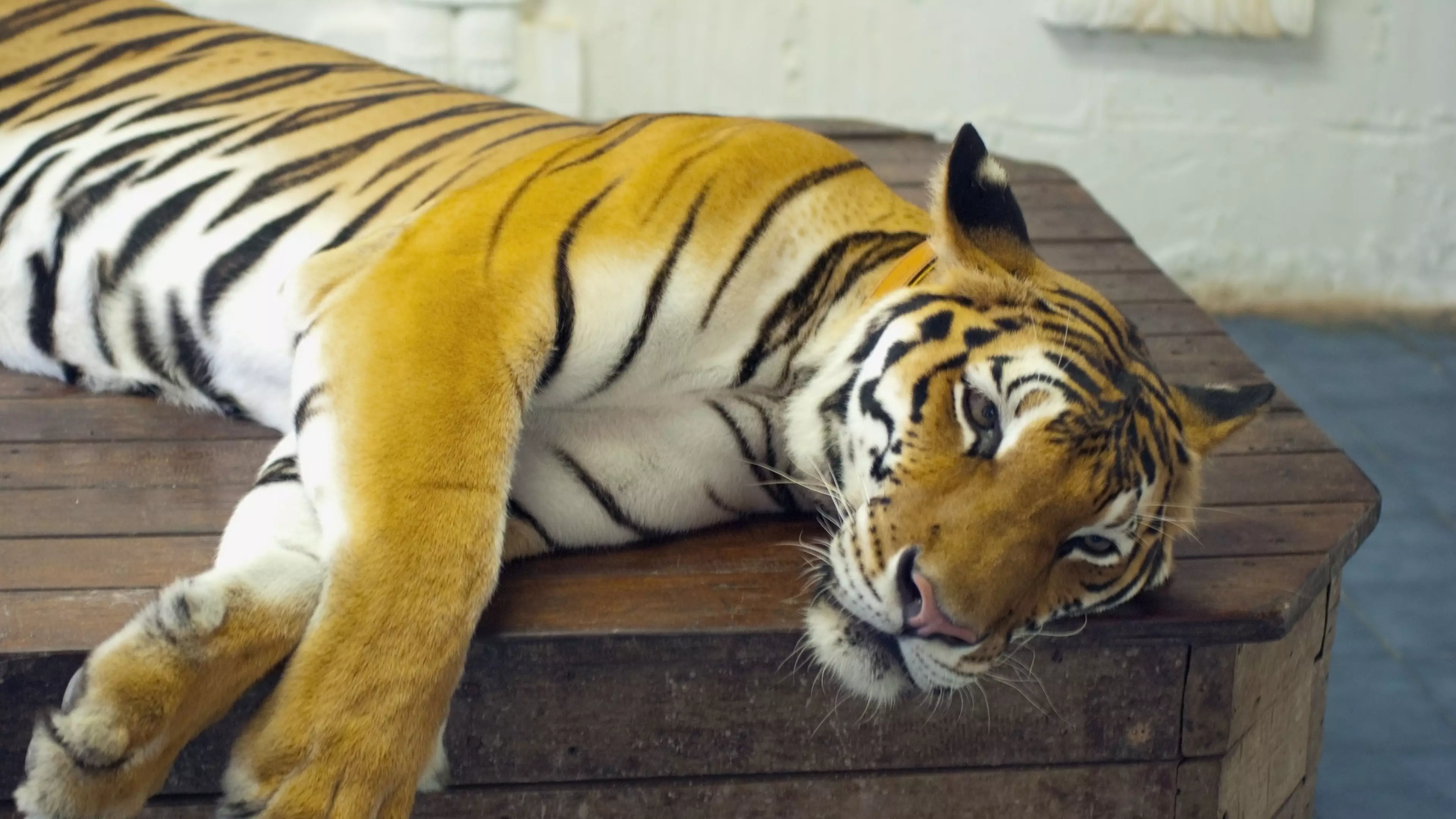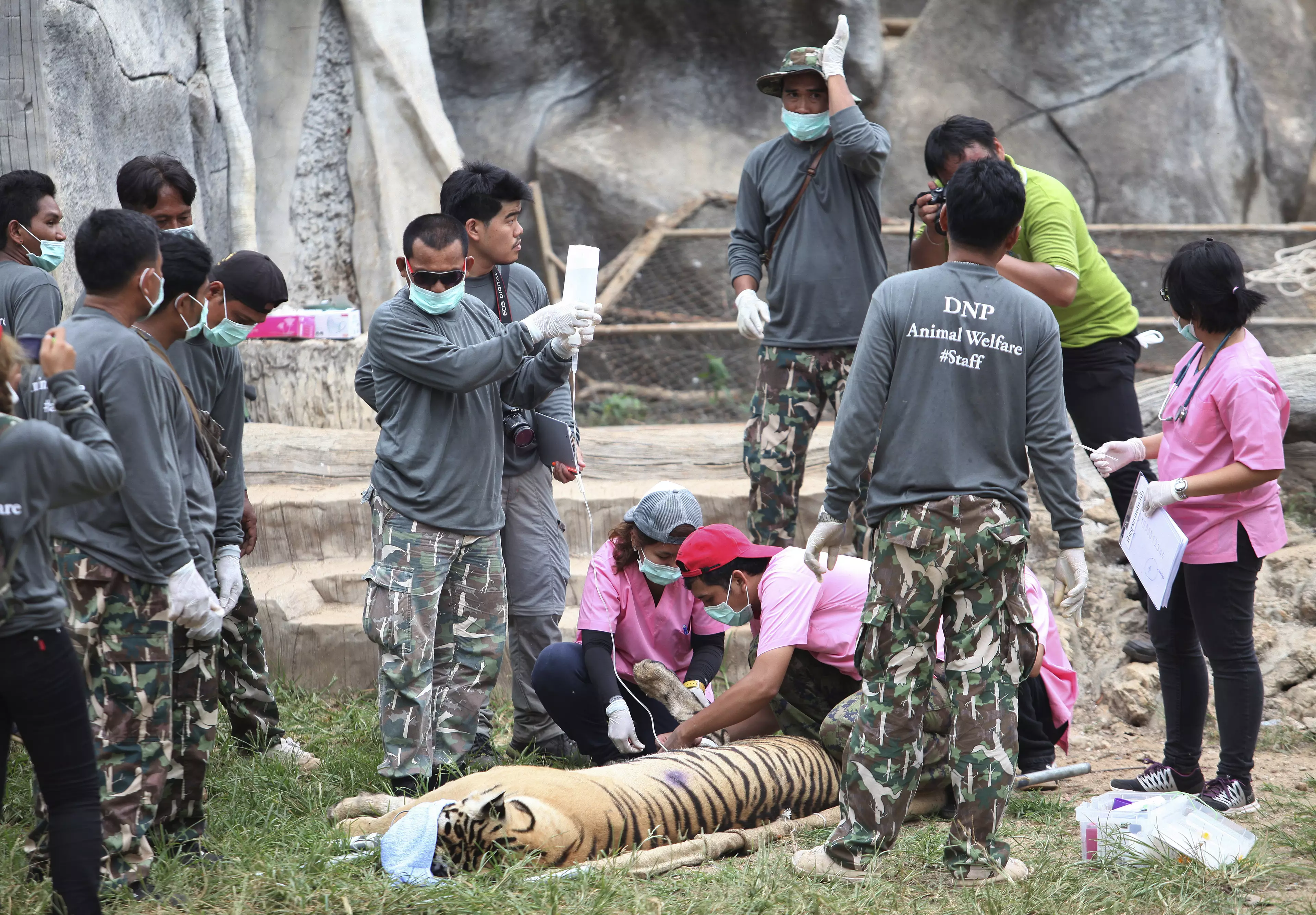
Eighty-six tigers rescued from Thailand's Wat Pa Luang Ta Bua - or Tiger Temple - have died in the three years since their rescue.
The Buddhist temple Kanchanaburi province was a massive tourist attraction with visitors lining up to have their photos taken with the Big Cats or to have a go at bottle feeding them for 600 Thai Baht (£11) a pop.
However, authorities stepped in and took away the 147 tigers in 2016 following complaints of animal trafficking. Police raiding the temple found the bodies of 40 tiger cubs inside a freezer, as well as other animal body parts.
Advert
The monks from the temple have always denied any claims of ill treatment, trafficking or illegal breeding.
After being removed from the temple, the tigers were then taken two animal sanctuaries, but sadly, more than half of them have since died.

According to authorities, many of the tigers are said to have died due to a virus, which hit while the animals were weakened due to the stress of the rescue and subsequent relocation.
Advert
Authorities also claimed the tigers had genetic problems down to inbreeding.
PrakitVongsrivattanakul, deputy director-general of the Department of National Parks, Wildlife and Plant Conservation, told MCOT: "When we took the tigers in, we noted that they had no immune system due to inbreeding.
"We treated them as symptoms came up".
Pattarapol Maneeorn, a wildlife veterinarian for the department, told a news conference: "There were six tigers [originally at the temple] and later that became 147 or even more, so there were always the risks and also we found that their health were not good to begin with.
Advert
"Their genetics have made their body weak and susceptible to the risk of infection."

But Athithat Srimanee, a caretaker from the temple, hit back at the government, telling Reuters: "They did not die because of inbreeding.
"When they raided the temple three years ago, they did not say anything about infection, so this is just a blame game."
Advert
He added: "At the temple, despite our lack of academic knowledge, we used kindness so the tigers lived in wide spaces and not in cages."
Featured Image Credit: PATopics: World News, Animals